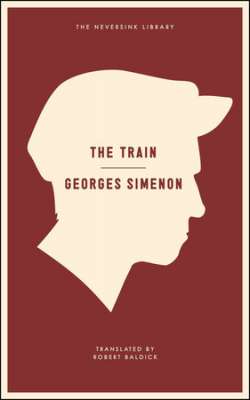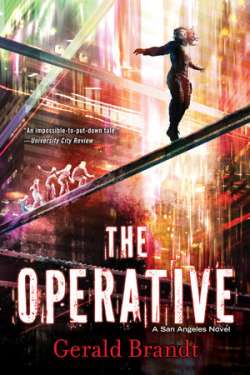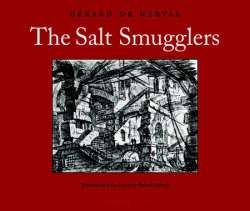« Return to all search results
Title Search Results

Setting forth formidable arguments for racial equality, Cable’s novel of feuding Creole families in early nineteenth-century New Orleans blends post–Civil War social dissent and Romanticism.

Darkly funny account of the office worker’s mindset by the celebrated French novelistA long-suffering employee in a big corporation has summoned up the courage to ask for a raise. But as he runs through the looming encounter in his mind, his neuroses come to the surface: What is the best day to see the boss? What if he doesn’t offer you a seat when you go into his office?The Art of Asking Your Boss for a Raise is a hilarious account of an employee losing his identity—and possibly his sanity—as he tries to put on the most acceptable face for the corporate world,with its rigid hierarchies and hostility to new ideas. If he follows a certain course of action, so this logic goes, he will succeed—but, in accepting these conditions, are his attempts to challenge his world of work doomed from the outset?Neurotic and pessimistic, yet endearing, comic and never less than entertaining, Perec’s Woody Allen-esque underling presents an acute and penetrating vision of the world of office work, as pertinent today as it was when it was written in 1968.

Restored to print for the first time in more than forty years, The President was hailed by the New York Times as a “tour de force”At 82, the former premier lives in alert and suspicious retirement—self exile—on the Normandy coast, writing his anxiously anticipated memoirs and receiving visits from statesman and biographers. In his library is the self-condemning, handwritten confession of the premier’s former attaché, Chalamont, hidden between the pages of a sumptuously produced work of privately printed pornography—a confession that the premier himself had dictated and forced Chalamont to sign. Now the long-thwarted Chalamont has been summoned to form a new coalition in the wake of the government’s collapse. The premier alone possesses the secret of Chalamont’s guilt, of his true character—and has publicly vowed: “He’ll never be Premier as long as I’m alive... Nor when I’m dead, either.” Inspired by French Premier Georges Clemenceau, The President is a masterpiece of psychological suspense and a probing account of the decline of power.

Against all expectations Marcel Féron has made a “normal” life in a bucolic French suburb in the Ardennes. But on May 10, 1940, as Nazi tanks approach, this timid, happy man must abandon his home and confront the “Fate” that he has secretly awaited. Separated from his pregnant wife and young daughter in the chaos of flight, he joins a freight car of refugees hurtling southward ahead of the pursuing invaders. There, he meets Anna, a sad-looking, dark- haired girl, whose accent is “neither Belgian nor German,” and who “seemed foreign to everything around her.” As the mystery of Anna’s identity is gradually revealed, Marcel leaps from the heights of an exhilarating freedom to the depths of a terrifying responsibility—one that will lead him to a blood-chilling choice.When it first appeared in English in 1964, British novelist and critic Brigid Brophy declared The Train to be “the novel his admirers had been expecting all along from Simenon.” Until The Train, she wrote, the dazzlingly prolific novelist had been “a master without a masterpiece.”From the Trade Paperback edition.

Gerald Brandt's thrilling near-future cyberpunk San Angeles seriesKris Ballard is a motorcycle courier. A nobody. Level 2 trash in a multi-level city that stretches from San Francisco to the Mexican border—a land where corporations make all the rules. A runaway since the age of fourteen, Kris struggled to set up her life, barely scraping by, working hard to make it without anyone's help. But a late day delivery changes everything when she walks in on the murder of one of her clients. Now she's stuck with a mysterious package that everyone wants. It looks like the corporations want Kris gone, and are willing to go to almost any length to make it happen. Hunted, scared, and alone, she retreats to the only place she knows she can hide: the Level 1 streets. Fleeing from people that seem to know her every move, she is rescued by Miller—a member of an underground resistance group—only to be pulled deeper into a world she doesn't understand. Together Kris and Miller barely manage to stay one step ahead of the corporate killers, but it's only a matter of time until Miller's resources and their luck run out....

Gerald Brandt's thrilling near-future cyberpunk San Angeles seriesKris Merrill was a survivor. She’d lost her parents as a young girl, and she’d been forced to flee the dubious shelter of her aunt’s home at thirteen to escape the unwanted attentions of her uncle. She’d lived on the streets of San Angeles, finding refuge in the lowest level of the city. When she got the chance, Kris found a room to rent on Level 2, earning a precarious living as a motorcycle messenger, a courier delivering sensitive materials the megacorporations would not trust to any method that could be hacked.A year ago, Kris’s life changed irrevocably when a delivery went terribly wrong, and she was targeted for termination by the Meridian corporation, one of the most powerful of the megaconglomerates that controlled the government. Salvation came in the form of Ian Miller, who rescued Kris from certain death, recruiting her for the underground resistance group of which he was a part. Since then, Kris has been hidden with the resistance, training to become an operative. Just as her training with the anti-corporate movement is nearing its end, their compound is destroyed by surprise attack. Ready or not, Kris and the other trainees are recalled to the dangerous metropolis of San Angeles. But their transport is shot down and Ian Miller, the man she loves, is captured. Someone, it seems, is using him to get to Kris.With the help of a retired operative with PTSD, and the mysterious man who fled the scene when Kris’s parents were killed, Kris searches for any sign of Ian. As the corporations battle civil unrest—and each other—the city slowly shuts down. Kris and San Angeles are running out of time....

The bestselling novel that follows a rare manuscript through centuries of exile and war, from the author of The Secret Chord and of March, winner of the Pulitzer Prize. Inspired by a true story, People of the Book is a novel of sweeping historical grandeur and intimate emotional intensity by an acclaimed and beloved author. Called "a tour de force"by the San Francisco Chronicle, this ambitious, electrifying work traces the harrowing journey of the famed Sarajevo Haggadah, a beautifully illuminated Hebrew manuscript created in fifteenth-century Spain. When it falls to Hanna Heath, an Australian rare-book expert, to conserve this priceless work, the series of tiny artifacts she discovers in its ancient binding-an insect wing fragment, wine stains, salt crystals, a white hair-only begin to unlock its deep mysteries and unexpectedly plunges Hanna into the intrigues of fine art forgers and ultra-nationalist fanatics.From the Trade Paperback edition.

“A page turner. . .Brooks is a master at bringing the past alive. . .in her skillful hands the issues of the past echo our own deepest concerns: love and loss, drama and tragedy, chaos and brutality.” – Alice Hoffman, The Washington PostA rich and utterly absorbing novel about the life of King David, from the Pulitzer Prize–winning author of People of the Book and March. With more than two million copies of her novels sold, New York Times bestselling author Geraldine Brooks has achieved both popular and critical acclaim. Now, Brooks takes on one of literature’s richest and most enigmatic figures: a man who shimmers between history and legend. Peeling away the myth to bring David to life in Second Iron Age Israel, Brooks traces the arc of his journey from obscurity to fame, from shepherd to soldier, from hero to traitor, from beloved king to murderous despot and into his remorseful and diminished dotage.The Secret Chord provides new context for some of the best-known episodes of David’s life while also focusing on others, even more remarkable and emotionally intense, that have been neglected. We see David through the eyes of those who love him or fear him—from the prophet Natan, voice of his conscience, to his wives Mikhal, Avigail, and Batsheva, and finally to Solomon, the late-born son who redeems his Lear-like old age. Brooks has an uncanny ability to hear and transform characters from history, and this beautifully written, unvarnished saga of faith, desire, family, ambition, betrayal, and power will enthrall her many fans.From the Hardcover edition.

First published as a feuilleton in a left-wing newspaper in 1850, The Salt Smugglers provides a political satire of the waning days of France’s short-lived Second Republic. With nods to Diderot and Sterne, this shaggy-dog story deals less with contraband salt smugglers than with the subversive power of fiction to transgress legal and esthetic boundaries. By writing what he claimed was a purely documentary account of his picaresque adventures in search of an elusive book recording the true history of a certain seventeenth-century swashbuckler, Nerval sought to deride the press censors of the day who forbade the serial publication of novels in newspapers – and in the process he provocatively deconstructed existing distinctions between fact and fiction. Never before translated into English and still unavailable as a separately published volume in French, The Salt Smugglers is a pre-postmodern gem of experimental prose. Richard Sieburth’s vibrant translation and illuminating afterword remind us why Gérard de Nerval’s blend of sly irony and acerbic social criticism proved so inspiring to authors as various as Baudelaire, Proust, and Leiris.

When his twin brother is killed in a car accident, Helmer is obliged to give up university to take over his brother’s role on the small family farm, resigning himself to spending the rest of his days "with his head under a cow." The novel begins thirty years later with Helmer moving his invalid father upstairs out of the way, so that he can redecorate the downstairs, finally making it his own. Then Riet, the woman who had once been engaged to marry Helmer’s twin, appears and asks if her troubled eighteen-year-old son could come live on the farm for a while. Ostensibly a novel about the countryside, The Twin ultimately poses difficult questions about solitude and the possibility of taking life into one’s own hands. It chronicles a way of life that has resisted modernity, a world culturally apart yet laden with familiar longing.
